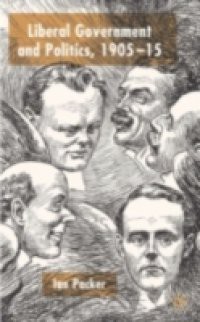The Liberal governments of 1905-15 faced some of the most daunting challenges of any recent British government. They had to deal with mounting political crisis in Ireland, violent campaigns from suffragettes demanding the vote for women, serious industrial unrest and a troubled international situation, that ended with the outbreak of the First World War. In the midst of all this, the Liberals not only survived, but finally removed the power of the House of Lords to veto legislation and laid the foundations for the modern welfare state by introducing old age pensions and the system of national insurance.This book examines how the Edwardian Liberal governments charted their way through these conflicting definitions of Liberal ideology in order to understand the nature of early twentieth-century Liberalism and why Liberal governments chose particular courses of action. The book covers all the key areas of domestic and foreign policy and concludes with a section on the Asquith government and World War One.

